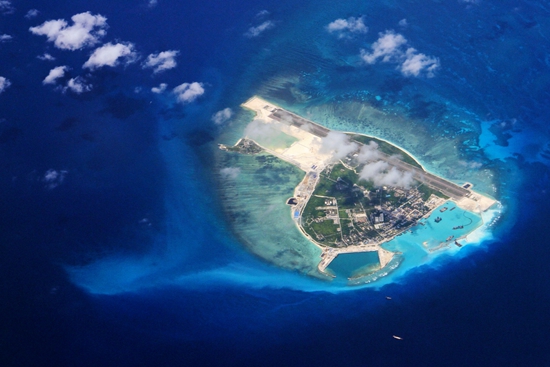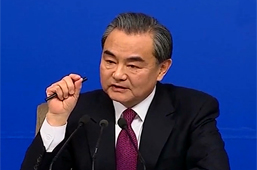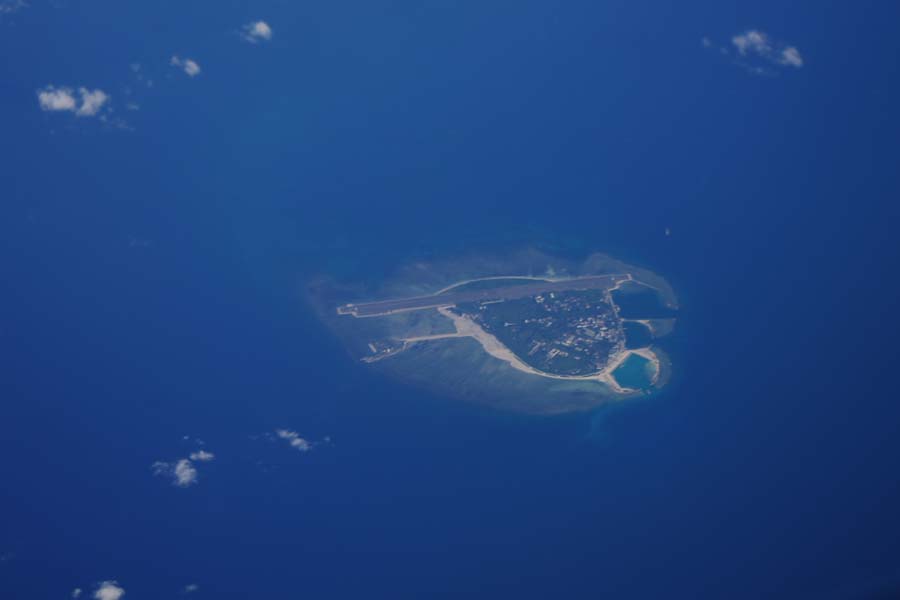
An aerial view of Yongxing Island, which is part of the Xisha Islands in the South China Sea, June 19, 2014. [Photo/IC]
The statement US Secretary of State Antony Blinken released on Sunday to mark the fifth anniversary of the ruling of "an international tribunal" in favor of the Philippines against China's maritime claims over some reefs and islands and their adjacent waters in the South China Sea exposes which country is the troublemaker in the otherwise tranquil and busy international waterway.
It is no secret that Washington pressed the then Benigno Aquino III administration of the Philippines to submit an appeal to an international tribunal that was run by a panel that was at the time controlled by the US and its allies. Except for producing a partial and unbinding ruling, the arbitration has only served to demonstrate the extent to which the US can bend the international legal system and laws to its own ends, and also how desperate it has become to close ranks with its allies to contain China.
Blinken's statement, which repeats the threat made by his predecessor that any attacks on the Philippines will invoke the 1951 US-Philippines Mutual Defense Treaty, reveals the US is already at the end of its wits when it comes to stirring up trouble in the South China Sea, and it is wielding the Cold War treaty as a baton, as well as trying to breathe life back into the ruling that it masterminded.
If Washington thinks the incursion of the guided missile destroyer USS Benford into China's territorial waters near the Xisha Islands on Monday will embolden the countries that have maritime disputes with China to join it in its troublemaking, it is misjudging the situation and will find it is held responsible for the escalation of regional tensions.
China has been maintaining close exchanges with all relevant countries, and it is already a consensus that the disputes should only be resolved by negotiations among the disputing parties. That the Association of Southeast Asian Nations became the largest trade partner of China last year, as well as the close cooperation between the two sides in fighting against the novel coronavirus, has driven home their shared will to pursue common development and deepen mutual trust, if not the failure of the US' attempts to drive a wedge between China and its neighbors.
The continuing modernization of the People's Liberation Army will not only enable China to better defend its sovereign and territorial integrity in the region, but also help it to better protect regional stability and freedom of navigation in the event external countries seek to hijack them for use as chips in their selfish geopolitical games.
Ironically, the USS Benford visited Qingdao on a five-day friendly exchange program in August 2016, shortly before the US embraced its China containment policy. It is Washington's anxiety about losing its hegemony in the region that has prompted it to throw itself to the forefront as a meddler in the South China Sea, transforming a ship of goodwill into an agent provocateur.















